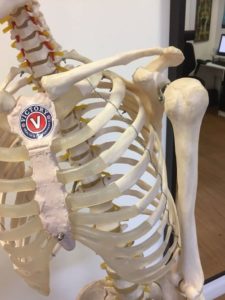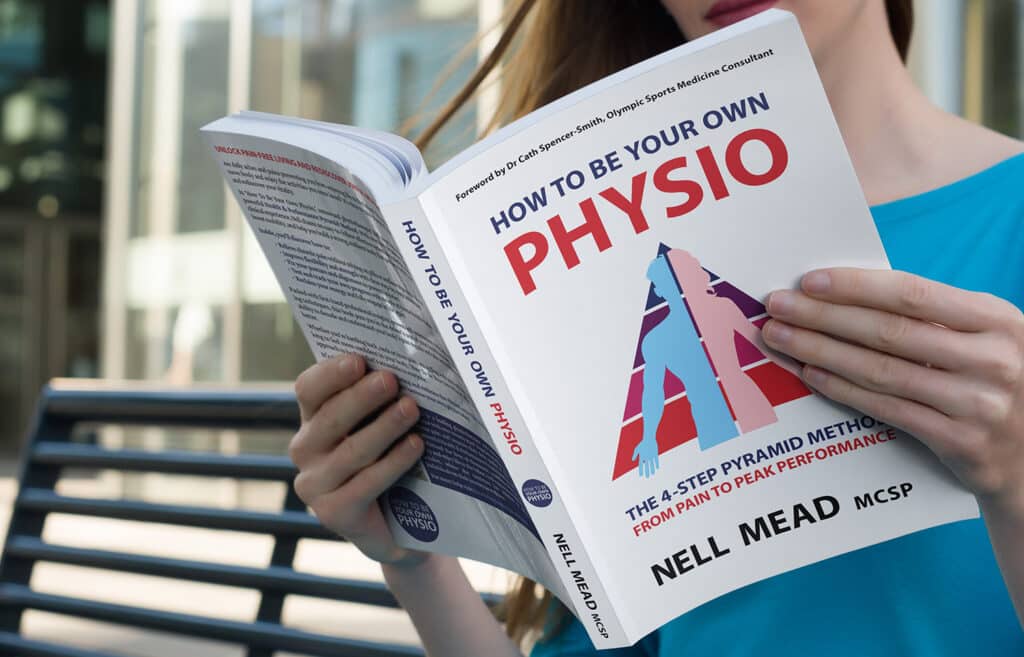
Online physio case study – Adam’s shoulder
Online physio: just “virtual first”, or can virtual be enough? I’ve been doing quite a lot of online physio
If you’re looking for rotator cuff physiotherapy, and need a therapist who is thorough and thinks outside the traditional physiotherapy box, then look no further!
Get in contact
Just call my London team on
0207 175 0150 or use the form below and let me help you get better.
The rotator cuff is a set of four fairly small muscles whose primary job is to hold the “ball” of your shoulder centred in the “socket”. Sounds simple, right? But shoulders are complex creatures and the rotator cuff muscles are often put in harm’s way.
The rotator cuff is supposed to be protected by three systems:
If one of these systems is compromised, it makes good rotator cuff function more difficult.
Rotator cuff problems may occur as the result of trauma (eg I sustained a rotator cuff tear hitting a backhand drive volley on Court 4 at Wimbledon!); or it commonly comes on gradually or without a specific injury, and you may be told that you have rotator cuff impingement or rotator cuff tendinitis.
The first thing to expect is that we’ll be having a long chat! I need to understand exactly when and where you feel the rotator cuff pain, and how you damaged it, and whether you have weakness as well as or instead of pain. I also need to understand what you’re hoping to be able to do with it! For example, are we aiming to get you back to being able to carry a bag of shopping; or do you want to be able to play full-contact rugby or serve a tennis ball at 100mph?
Next, we’ll look at your shoulder and everything that may be impacting on your ability to control the ball within the socket. We need to understand whether your rotator cuff problem is due to bony structures, ligamentous integrity or neuromuscular control.
Working this out may involve imaging such as X-ray or MRI; and we may need to talk to other specialists such as an orthopaedic shoulder surgeon, a radiologist, a neurologist, a sports doctor or a rheumatologist.
Physiotherapy for torn rotator cuffs and related problems will focus on retraining the muscles and movement patterns that control the shoulder, whether you’re at rest or challenging yourself. This will include the rotator cuff muscles themselves which directly control the ball’s position in the socket (though you’ll find that I’m not a fan of wafting your arm around with a bit of theraband!) and also the global stabilisers which control the position of the socket, such as the serratus anterior and lower trapezius.
However, if the passive systems (bone, cartilage and ligament) are significantly compromised, then we may also need to involve some of the other professionals. I regularly work with some of London’s most talented and experienced shoulder surgeons, radiologists and sports doctors. Teamwork is key to success in this situation if you’re to make the best possible recovery – but don’t forget that the most important member of the team is you!
Follow-up sessions if required are usually an hour – it’s important to me to be very thorough when it comes to rotator cuff physiotherapy, as I want to be the last shoulder physiotherapist you need.
Learn more about the following shoulder physiotherapy I provide
Where i share my logical and simple formula to help you improve your own body. See all my rotator cuff physiotherapy related videos.
As a leading rotator cuff injury physiotherapist in London, I regularly write about injuries, treatment and assessment techniques.

Online physio: just “virtual first”, or can virtual be enough? I’ve been doing quite a lot of online physio

What is a frozen shoulder? What’s actually going on inside a frozen shoulder is still a bit open to

A lot of our patients worry about their posture – and as we all spend more time sitting, it’s becoming really important. This week, Nell looks at how posture can affect your shoulder pain

Online physio: just “virtual first”, or can virtual be enough? I’ve been doing quite a lot of online physio
Simply fill in the form and my team will call you
Quick Links
Address
Longcroft House
2-8 Victoria Ave
London
EC2M 4NS
Are you tired of quick fixes that leave you back at square one? Ready to take control of your health with evidence-based strategies?
My book isn’t just another health tome – it’s your ticket to understanding your body and conquering both niggles and long-standing symptoms.
